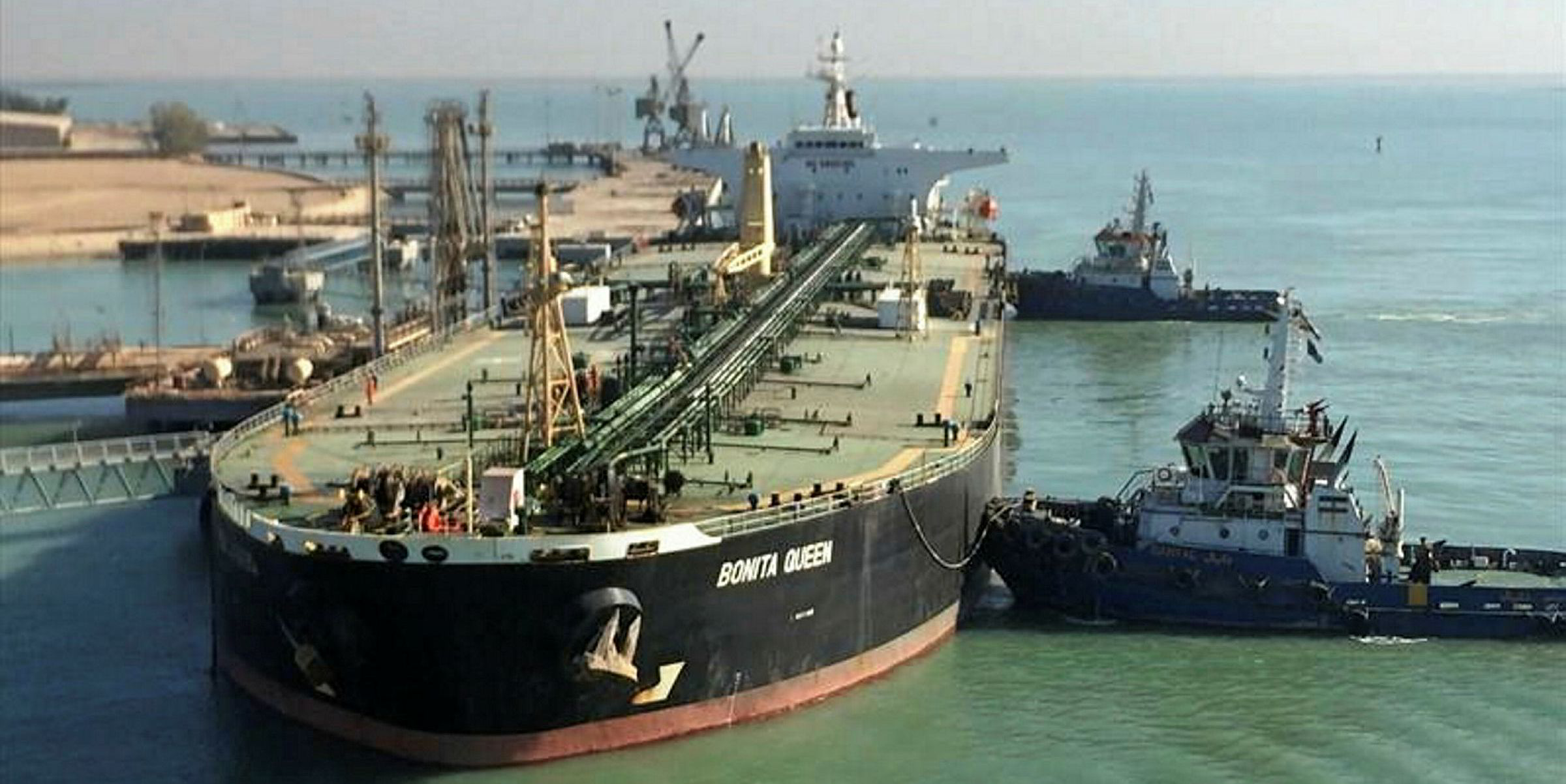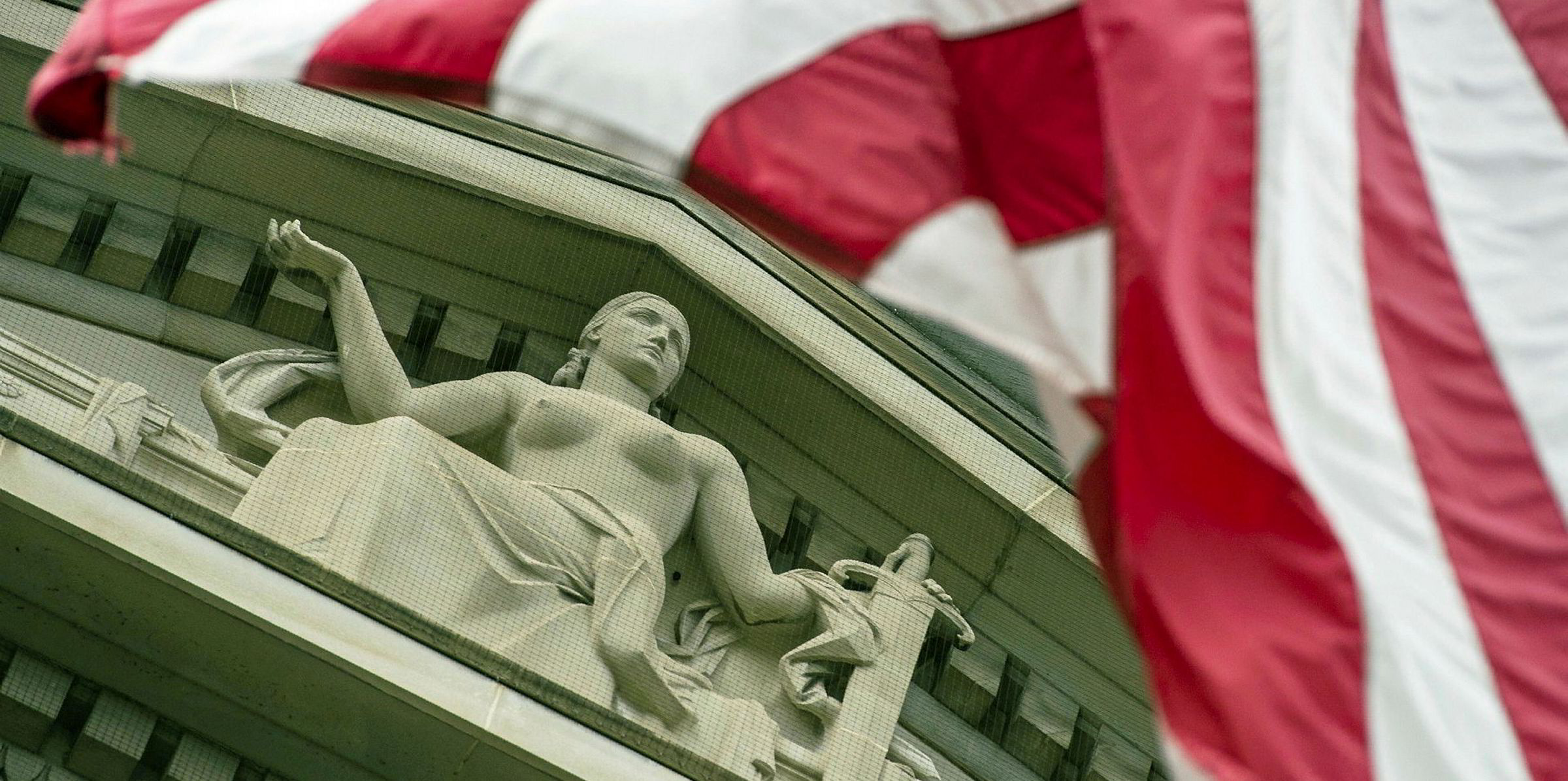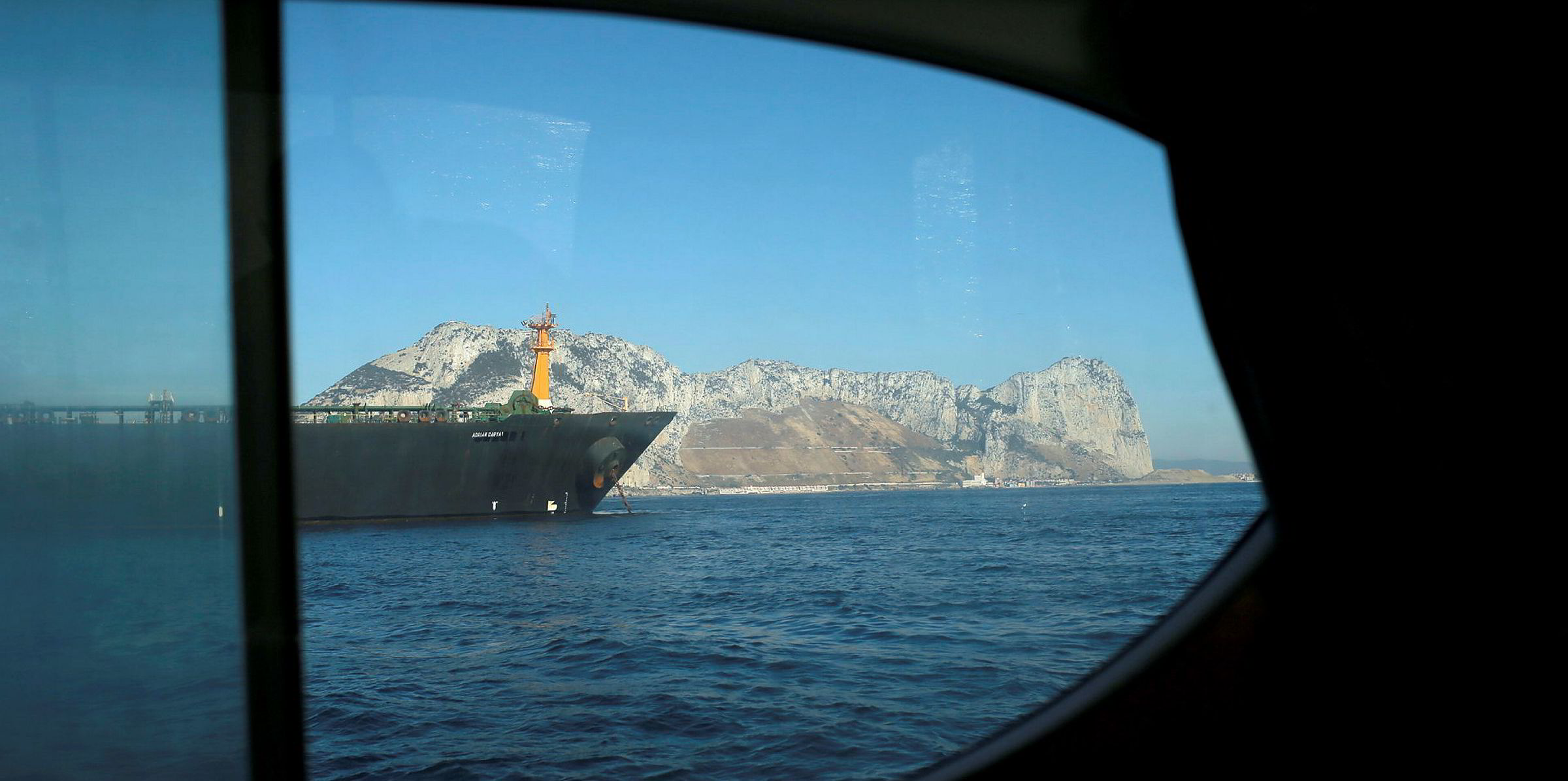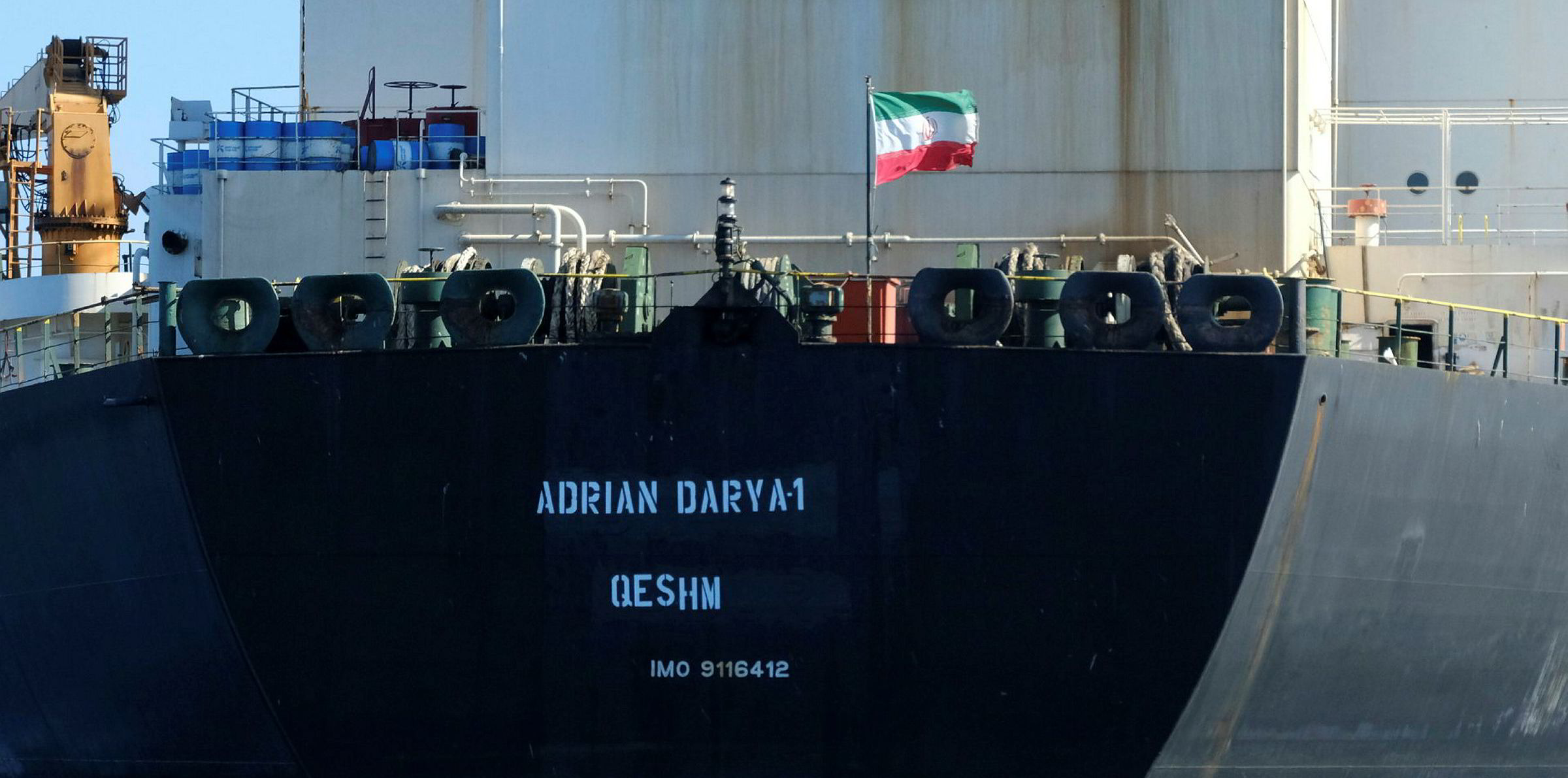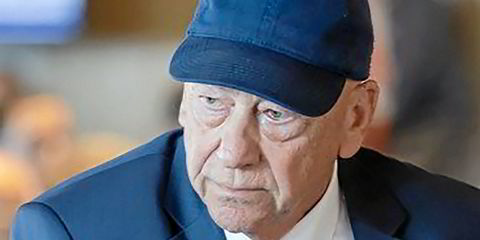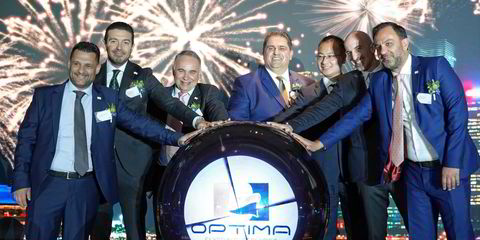The US is sanctioning more than a dozen companies, six ships and nine individuals constituting a network they said illegally sold Iranian oil to bad actors around the world.
The network, which allegedly includes companies in India, Iranian government officials, Lebanese nationals and a Panamanian-flag ship, are said to have funnelled "hundreds of millions of dollars" worth of oil to the Bashar al-Assad regime in Syria, Hezbollah and others.
"The Iranian regime is leveraging a terrorist organisation as its chief conduit" for oil sales, said Sigal Mandelker, the US Treasury Department's undersecretary for terrorism and financial intelligence.
"Iran’s exportation of oil directly funds acts of terrorism by Iranian proxies and atrocities by the Assad regime against innocent people."
Mandelker called it an "oil-for-terror shipping network" maintained by the highest-ranking officials in the Quds Force — considered by the US to be a terrorist entity.
The move sees 31 individuals, companies and ships added to the US Treasury Department's specially designated nationals list, which essentially bans those listed from doing business in the US or with US citizens.
Shipping warned
The agency also warned owners, managers, insurers and others against doing shipping Iranian crude oil, saying those that do "are at serious risk of being targeted" for sanctions.
The warning was the second this year, following one released in March that named dozens of ships alleged to have engaged in either direct Iranian oil trading or to have engaged in ship-to-ship transfers to aid it.
Both cautioned against engaging in "deceptive shipping practices" like falsifying documents, ship-to-ship transfers and disabling automatic identification systems.
"The United States is committed to aggressively enforcing our sanctions against the Iranian regime, denying it the financial means to sponsor terrorism and advance its ballistic missile program while permitting humanitarian trade benefiting the Iranian people," the warning read.
"Targeting shipments of petroleum and petroleum products from Iran is a critical element of denying the Iranian regime access to financial resources to support its malign activities."
The Mehdi Group
Many of the entities the Treasury Department identified as part of this network are connected to the Mumbai-based Mehdi Group, directed by 46-year-old Indian national Ali Zaheer Mehdi.
The company, through a bevy of subsidiaries, allegedly manages or owns seven ships that engaged in oil trading for the benefit of Iran.
Three of the ships — the 97,220-dwt Bonita Queen (built 1995), the 46,162-dwt Devrez (built 1996) and the 158,817-dwt Tour 2 (built 2007) — were operated by Mehdi subsidiaries, Bushra Ship Management and Khadija Ship Management, both based in India.
A third subsidiary, Vaniya Ship Management, was said to have helped the Mehdi Group set up shipowning shell companies in the Marshall Islands. Those shell companies bought three crude tankers, the 159,885-dwt Sarak (built 2001), the 160,183-dwt Sobar (built 2001) and the 153,152-dwt Solan (built 1998).
Three more subsidiaries, Singapore-based Mehdi Offshore and Ship Management, UAE-based Penta Ocean Ship Management & Operation and Lebanon-based Africo 1 Off-Shore, also aided in the alleged illicit trade, with Africo operating the 46,267-dwt Jasmine (built 1996).
Hezbollah connections
Others were sanctioned for their connections to the network via Hezbollah in. Lebanon.
Hokul SAL Offshore and Talaqi Group, both Lebanese companies, are said to be run by Hizballah official Muhammad Qasim al-Bazzal, who was already listed by the US.
The duo allegedly either supplies Iranian crude to Syria or finances its shipment on National Iranian Tanker Co ships, the 19,062-dwt Delice (built 1998), the 281,050-dwt Destiny (built 1999), 159,681-dwt Sinopa (built 1999) and the 299,214-dwt Happiness I (built 2003).
Three more, Syria-based Nagham Al Hayat, Tawafuk and Alumix are being listed for their connections to al-Bazzal.
Ali Qasir, a Lebanese national, is also being added to the specially designated nationals list as he negotiated prices and settled ship payments.
Qasir and Shamsollah Asadi, an Iranian law enforcement official that allegedly helps Quds Forces obtain tankers, were said to have worked together to facilitate a shipment of oil aboard the 300,600-dwt Adrian Darya 1 (built 1997).
That ship was freed from Gibraltar 19 August. It was last seen in the eastern Mediterranean Sea, near Lebanon Monday, according to automatic identification system data.
The others
The Hamrahan Pishro Tejarat Trading Company, a Tehran tanker charterer, is also being listed as its managing director Mahmud Ashtari worked with Qasir and the Talaqi Group to ship "millions of dollars' worth" of steel debar.
The Kish P&I Club is also being cited for its role in insuring the ships.
